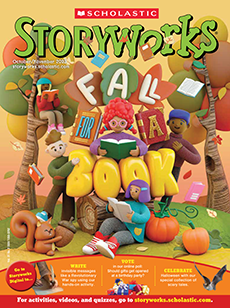It’s almost time to meet the other kids in the colony’s cafeteria. “Where does this road go?” Milo asks, pointing.
“Nowhere,” Emma says. “It dead-ends at the edge of the biodome.”
“There used to be a vegetable garden out there,” I say. “But it’s gone now. Nobody uses this road anymore.”
Milo’s eyes shine. “Great! I want to see something nobody else from Earth has seen.”
Together we walk down the empty road until we get to the end. The shimmering bubble of the biodome rises from the pale ground. Beyond the dome is the endless lunar desert.
“This is so cool,” Milo breathes, taking it all in. I smile to myself. I think “cool” must be Milo’s favorite word.
And then he looks down. “What is that?”
He’s pointing to a place just above where the dome meets the ground. And I see it: a jagged crack in the dome itself, like an open wound.
The crack whistles as the air we need to breathe slowly escapes the dome. I’ve never seen a crack before, but I know exactly what it means, and so does Emma. The crack is already branching out and spreading. Soon the entire dome will weaken and shatter. And we’ll all die. Not just me and Emma and Milo. The whole colony. And every Earth kid who came to visit.
“We don’t have much time,” I say. “An hour at most.”
“Probably more like minutes,” Emma says.
“What?” Milo gasps. “What’s happening?”
“Everything is going to be OK,” I say. I’m talking to myself as much as to Milo.
Emma and I have been running drills for this our whole lives. But this isn’t a drill. Emma’s hands are shaking, and she looks as scared as I feel.
But we know each other so well that it’s like we’re talking without words. I don’t have to tell Emma to run for the alarm. She’s already there, pushing the emergency button. A loud siren starts wailing.
And Emma doesn’t have to tell me to find the emergency patch kit in its bright-orange box by the end of the road. I’m already connecting the big plastic patch to the dome. Then I hear the roar of a rover, and a second later Dad’s calm, reassuring voice.
“Great job, Robs. Your mom and I will take over now.”


